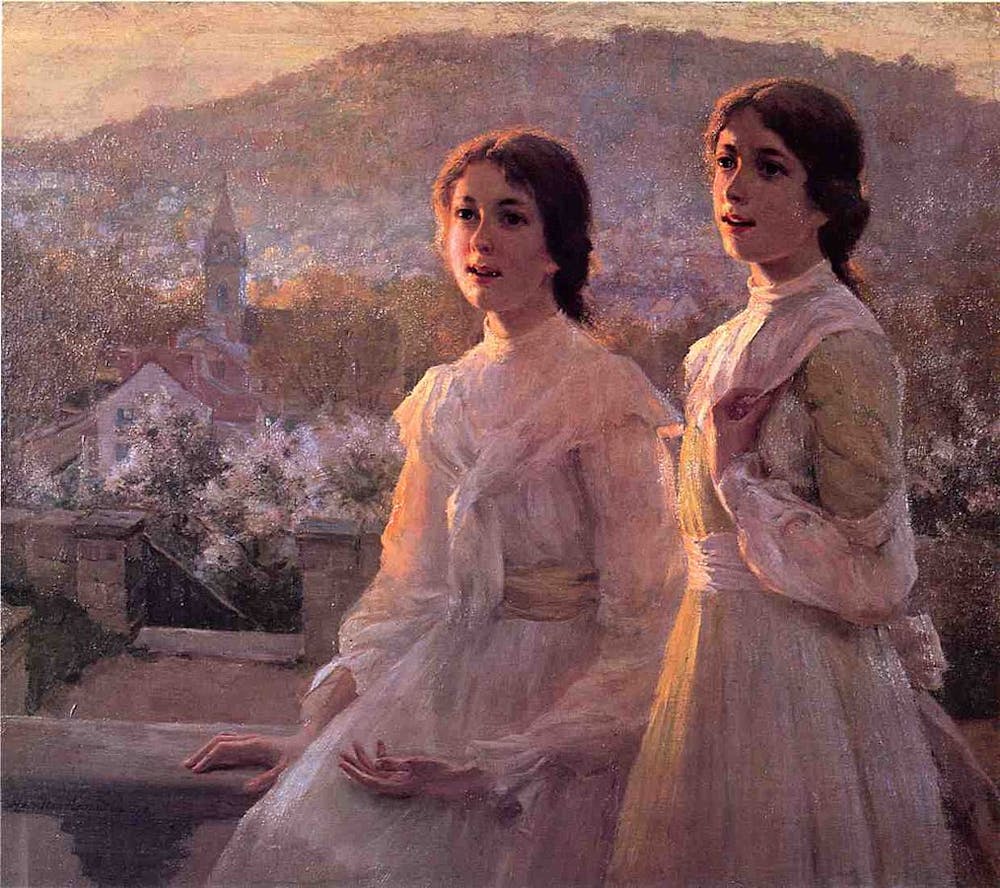Debate around Confederate and white supremacist imagery has been renewed in Charlottesville with the recent activist removal of a slave auction plaque in Court Square. Like many other southern cities, Charlottesville’s past is inextricably tied to slavery — and glorification of that past has increasingly come under scrutiny. However, while momentum in opposition to white supremacist symbolism is growing, one form of such imagery has gone largely unchallenged — the Southern belle.
To many, the Southern belle is a comforting image — a young woman adorned in a cake-like gown, gloved hands folded, smiling. Such a young woman evokes a sense of nostalgia, a sense of comfort in observing such womanly grace. However, there is something undoubtedly sinister about the Southern belle — her history, her implications and the troubling fact of her continued existence.
Like other Antebellum images, the Southern belle is a warped form of 19th century fact that originated as part of the lost cause narrative. This was part of a much larger class and racial hierarchy that maintained a white hegemony in the years following Reconstruction and justifying the calculated terrorization of black citizens. However, the Southern belle has been kept alive in polite society — by allowing the brutality that created her to be disguised in exaggerated femininity.
The belle has become entrenched within our concept of the ideal southern woman — passive, beautiful, chaste — without importance beyond her relation to a male relative. She is a wife, a daughter, a mother, but never an individual of her own. It is easy to forget how easily racism and sexism are mixed — how the obsessive glorification of southern white women’s beauty and chastity was used to justify the lynchings of black men and sexual abuse of black women for centuries. Even into the modern era, the ways in which society so often views black men as inherently criminal and black women as inherently sexual originate with these Antebellum ideas. If we are to demand that statues come down, that flags be retired, that the Confederacy be remembered as the violent act of treason that it was, then we must include the Southern belle in that attack.
Often, defenders of the Southern belle claim that to erase her is to erase Southern history. However, there is a chasm between understanding history and romanticizing it. When we understand our history, we see it as multi-faceted — we learn of the horrific conditions of the enslaved and the myriad of ways they resisted their dehumanization. We learn of the exorbitant wealth and power of slave owners and the ways they enacted a reign of terror upon black people in a post-Reconstruction south.
In learning this, we also understand how the Southern belle was reimagined in the 1920s when the Ku Klux Klan reemerged and began erecting most of the Confederate statues at the center of modern controversies. Fabricated history creates a romanticism we must fight — a story that leads us to believe that the Civil War was fought for state rights, that the Confederacy was noble, that Southern women are best remembered as passive, doll-like creatures emblematic of a more chivalrous, righteous time. Such a narrative is deeply harmful, and deeply false.
As an Alabama native and a student at the University, I love the South. I believe in southern hospitality, that college football is the best football and in the character-building power of muggy, ninety-degree summers. I love the South and the resilience of her people despite crippling poverty and indifferent state governments. I have southern pride — Virginia pride and Alabama pride. However, it does my home a disservice to be prideful of a lie.
It is possible, in fact necessary, to love something deeply while also recognizing its flaws and refusing to ignore or justify them. Continuing to admire the Southern belle ignores the complexity that we owe our past. When we truly love something, we want it to be held accountable and encouraged to do better and to grow into a more just, more welcoming place. Virginia — and the South in general — cannot grow without retiring Confederate imagery of all forms. We must own up to the profound injustices of our past while also celebrating those who fought — and continue to fight — for progress. Belles, it’s time for a costume change.
Emma Camp is a Viewpoint Writer for The Cavalier Daily. She can be reached at opinion@cavalierdaily.com.
The opinions expressed in this column are not necessarily those of The Cavalier Daily. Columns represent the views of the authors alone.







